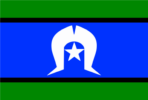
Supporting Executive Team Dynamics and Capability Framework Development at a Leading Social Work Association

The Brief
A leading professional association representing over 12,000 members sought to enhance the dynamics and effectiveness of its executive team.
The organisation aimed to develop a capability framework that would support high performance across its members, while also ensuring that the executive team could lead effectively through periods of change and strategic development.
Improved Employee Engagement
Companies that undergo successful organisational transformation experience a 30% increase in employee engagement. Engaged employees are more productive, less likely to leave, and contribute to a positive workplace culture.
Reference: McKinsey & Company, "The People Power of Transformations" (2018)
Financial
Organisations that successfully implement transformation initiatives see an average 25% improvement in their financial performance, including revenue growth and profitability.
Reference: BCG, "The Role of Leadership in Transformation" (2020)
Return on Investment (ROI)
Transformation projects with effective change management practices are six times more likely to meet their objectives and achieve a 143% return on investment (ROI).
Reference: Prosci, "Best Practices in Change Management" (2019)
Reduced Time to Market
Organisations that undergo successful digital transformation reduce their time to market by 20-50%, allowing them to bring products and services to customers faster and stay competitive in rapidly changing markets.
Reference: Deloitte, "Digital Transformation: A Roadmap for Billion-Dollar Organizations" (2021)
The Process
Future Leadership employed a three-step methodology to plan, develop, and stress-test the Capability Framework in partnership with the association.
The methodology involved extensive stakeholder consultation, including interviews and workshops with key members of the executive team and other stakeholders within the organisation. This collaborative approach ensured that the framework was aligned with the organisation’s strategic goals and the future needs of the profession.
The final framework included a range of technical and non-technical capabilities applicable across various practice areas and career stages. These capabilities were categorized into four proficiency levels: emerging, evolving, established, and expert. The framework covered key areas such as Advocacy, Systems Thinking, and Assessment.
Following the completion of the framework, Future Leadership continued to partner with the association to implement the framework by creating a self-service, online self-assessment tool based on the descriptors in the framework.
The Advisory Team's Impact Across Clients Through Survey Feedback
32% Increase in Self Awareness
Individuals’ awareness of motives, values, strengths and development needs
21% Increase in Motivation
Individuals’ motivation to apply learning, insight and further develop
27% Increase in Confidence
Individuals’ confidence in their abilities and impact as a leader
30% Increase in Role Clarity
Individuals’ clarity around success factors associated with their role
The Outcome
The final framework is now a clear representation of the key, future-focused capabilities that underpin high performance in the profession.
The framework has been positively received by all key stakeholders, and it has provided a strong foundation for ongoing professional development within the association. The executive team dynamics program has enhanced the leadership capabilities of the team, enabling them to lead the organisation effectively through change and to better support their members.

